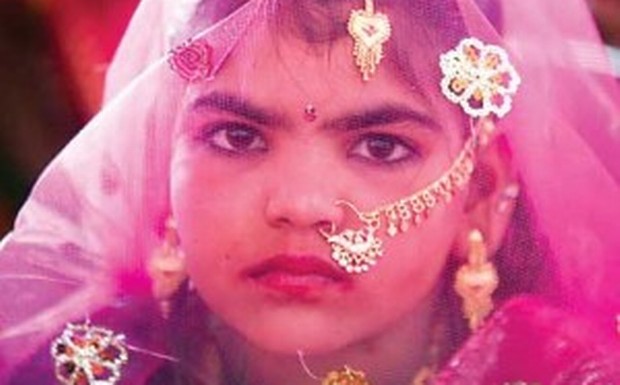Bangladesh’s progress in reducing early marriage has been praised worldwide on the eve of the Girl Summit.
Between 1990 and 2013, the number of women dying at childbirth in Bangladesh fell by 70 percent with an opportunity to achieve the MDG target.
Bangladesh has made remarkable progress over the past two decades in increasing primary enrolment of girls so that over 95 percent start primary school and more girls than boys now complete their primary education.
The country has trained more health and family planning workers than any other country. The result is that the average woman now has only 2.3 children compared with more than 6 previously.
The proportion of women marrying in their early teens continues to decline as a result of education, employment and social awareness. Twenty years ago, 52 percent of women were married by the age of 15 but that is now down by 17 percent.
Despite these efforts, there is still more to be done to reduce child marriage in Bangladesh.
By the end of 2013, over half of the 3.7 million Bangladeshi women between 20 and 24 were married before they were 18.
Bangladesh has shown commitment through adopting international treaties, such as the Convention on the Elimination of all Forms of Discrimination against Women, the Convention on the Rights of the Child, and the Convention on Consent to Marriage, Minimum Age for Marriage and Registration of Marriages.
The new Children’s Act, which was passed in 2013, provides enhanced measures of redress against child marriage as well as support to child brides while a new nationwide campaign was recently announced to accelerate action on child marriage called “Girls, Not Brides”.
As part of its election manifesto, the government is looking to ensure that by 2021, the golden jubilee of independence, no girl under 15 will be getting married. It has also pledged to eradicate all child marriage within a generation – by 2035.
Prime minister’s itinerary in London
A special Biman Bangladesh flight carrying the prime minister will land at the Heathrow airport at 3:30pm local time on Monday.
Hasina will stay at the Hilton Hotel at Park Lane during her visit.
From 8:30pm to 9pm Hasina will meet with David Cameron at 10 Downing Street.
From 11:55am to 12:25pm she will take part in the high level session of the Girl Summit. There she will join a discussion moderated by UNICEF Executive Director Anthony Lake.
At 11am Wednesday, she will meet expatriate Bangladeshis and leave for Dhaka at 6:15pm from Heathrow.
Genital Mutilation
Organisers of Girl Summit say female genital mutilation (FGM) and early and forced marriage affects millions of girls every year, violating their rights and destroying their growth.
Although FGM is mostly practiced in Africa and the Middle East, forced marriages are prevalent in almost all societies, including those in the developed world. One in three girls in developing countries is married off by 18.
Some are as young as eight.
Girls deliver children while they are still children and that puts them at risk of death or suffering for the rest of their lives. They are more likely to be poor and stay poor.
Forced marriage victims can suffer physical, psychological, emotional, financial and sexual abuse.
Early marriage and subsequent early pregnancies create health risks for women and often take their lives and the children’s. Poverty and lack of education are core causes of early marriage.
Source: bdnews24









